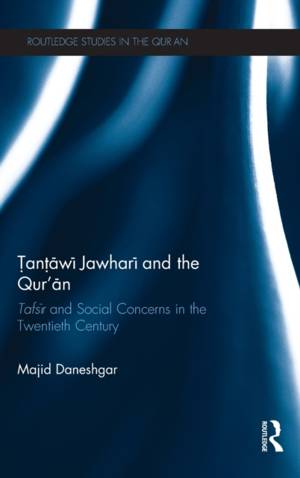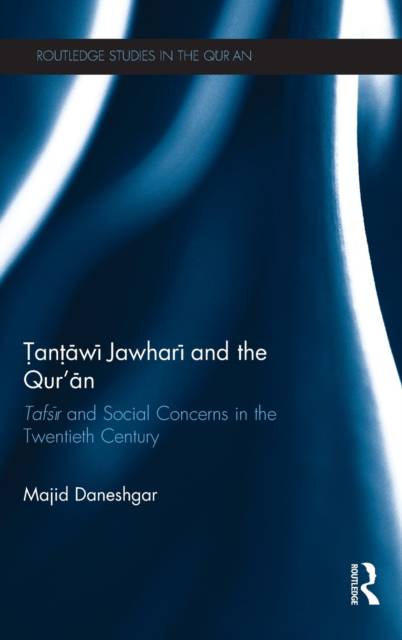
- Retrait gratuit dans votre magasin Club
- 7.000.000 titres dans notre catalogue
- Payer en toute sécurité
- Toujours un magasin près de chez vous
- Retrait gratuit dans votre magasin Club
- 7.000.0000 titres dans notre catalogue
- Payer en toute sécurité
- Toujours un magasin près de chez vous
Description
Shaykh Ṭanṭāwī Jawharī was an Egyptian exegete known for having produced a scientific interpretation of the Qurʾān. A pioneering scholar in terms of familiarising the people of his time with many previously neglected matters regarding Islam and science, his publications shocked the Cairo educational system and other Muslim places of learning in the early twentieth century.
This book examines the intersection between Ṭanṭāwī Jawharī and Egyptian history and culture, and demonstrates that his approach to science in the Qurʾān was intimately connected to his social concerns. Divided into three parts, part one contains three chapters which each introduce different aspects of Ṭanṭāwī Jawharī himself. The second part explores the main aspects of his tafsīr, discussing his approach to science and the Qurʾān, and how he presented Europeans in his tafsīr, and then addressing the impact of his tafsīr on wider Muslim and non-Muslim society. The third section draws attention to the themes from all 114 sūras of the Qurʾān that are discussed within his commentary. It then analyses the current status of his views and the post-Jawharism perspective on science and the Qurʾān, both today and in an imaginary future, in 2154.
Providing new English translations of Ṭanṭāwī Jawharī's work, the book delivers a comprehensive assessment of this unique figure, and emphasises the distinctive nature of his reading of the Qurʾān. The book will be a valuable resource for anyone studying modern Egypt, the Qurʾān, Islam and Science, and scientific interpretation and inimitability.
Spécifications
Parties prenantes
- Auteur(s) :
- Editeur:
Contenu
- Nombre de pages :
- 176
- Langue:
- Anglais
- Collection :
Caractéristiques
- EAN:
- 9781138052529
- Date de parution :
- 14-08-17
- Format:
- Livre relié
- Format numérique:
- Genaaid
- Dimensions :
- 156 mm x 234 mm
- Poids :
- 453 g

Les avis
Nous publions uniquement les avis qui respectent les conditions requises. Consultez nos conditions pour les avis.






